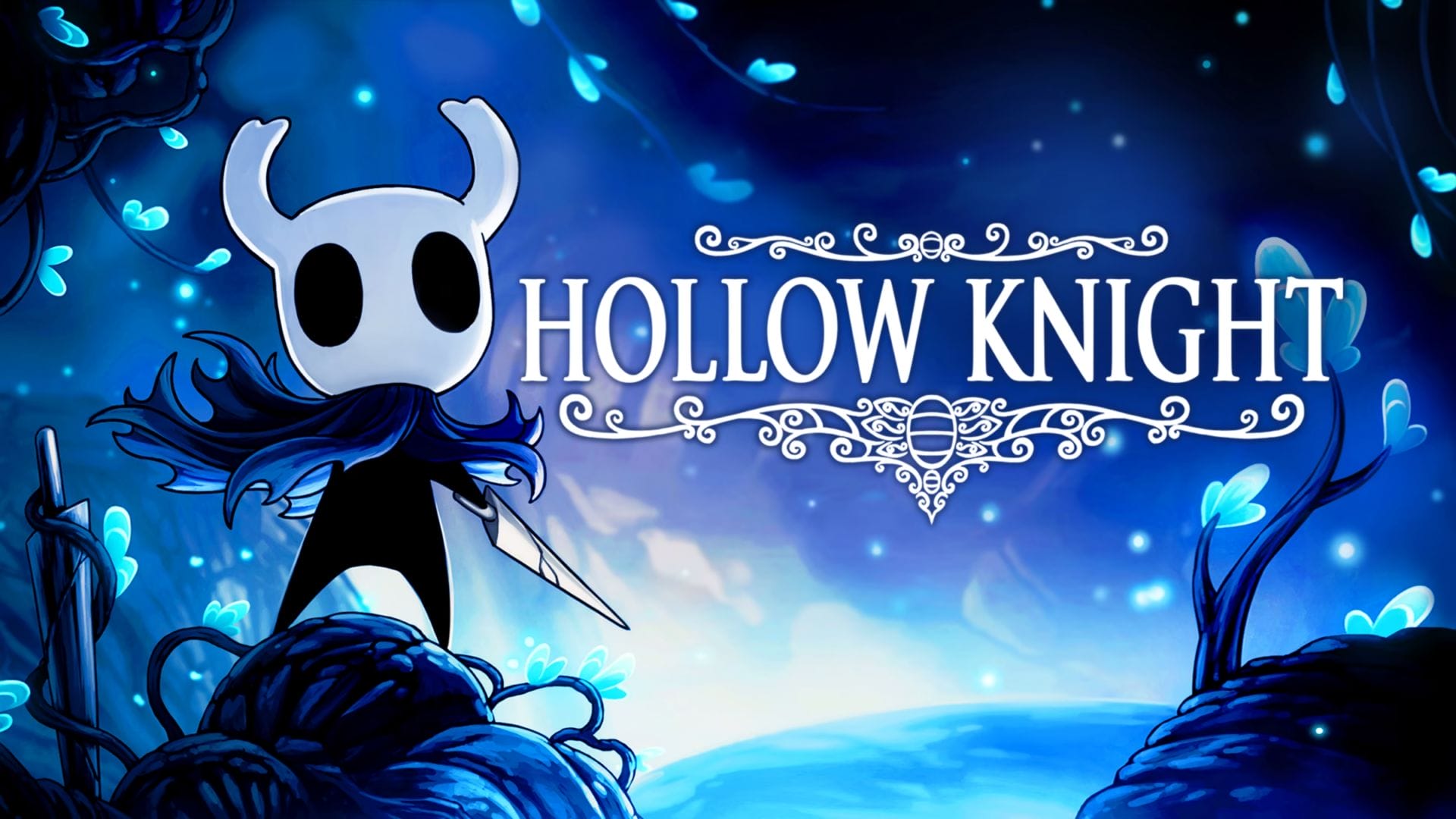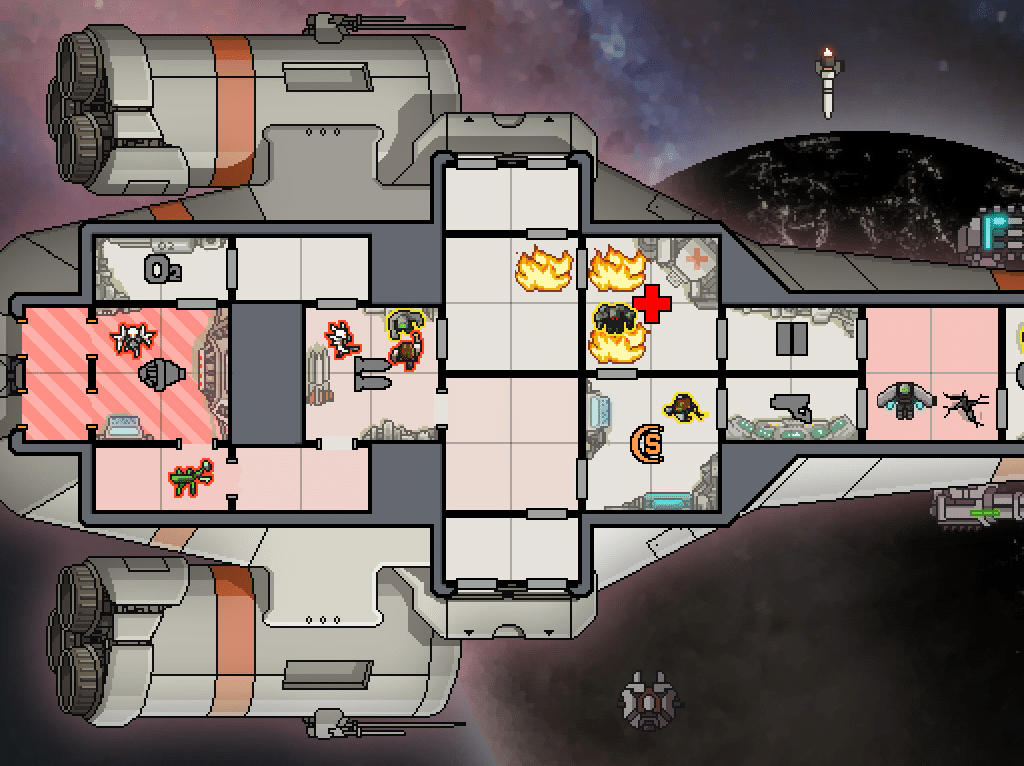More and more developers are choosing Rust over C++ as their go-to language for game development. In this article we will try to give some insights on the main foundations of game development with rust.
Introduction
Rust is a systems programming language that runs blazingly fast, prevents segfaults, and guarantees thread safety. Developed by Mozilla, it has gained a reputation for being fast, safe, and concurrent, making it an increasingly popular choice for game development.
In the world of game development, choosing the right tools and technologies is crucial for creating high-quality, engaging experiences. Developers must consider factors such as performance, safety, and concurrency when selecting a language to build their games with. Rust offers a compelling solution for these concerns, making it an attractive option for game developers.
In recent years, Rust has been used to develop a number of high-profile and successful games, such as Hollow Knight and Dusk. Its combination of performance, safety, and concurrency make it well-suited for building complex, resource-intensive games.
Game development is a rapidly evolving field, with new technologies and platforms constantly emerging. From PC and console games to mobile and web games, developers have a wide range of options for creating and distributing their creations.
As the industry continues to grow and change, the tools and technologies available to game developers have also evolved. From high-level game engines like Unity and Unreal Engine to low-level programming languages like C++ and C#, there is a vast array of options for building games.
Choosing the right tools and technologies is crucial for game developers, as it can have a major impact on the quality, performance, and success of a game. Developers must consider factors such as performance, safety, concurrency, and community support when selecting the technologies to build their games with.
In this article, we will explore the tools and frameworks available for game development with Rust, provide examples of games that have been developed with the language, and discuss the pros and cons of using Rust for game development. We will also provide a guide for those who are interested in getting started with game development in Rust, including resources for learning the language and joining the community.
WHAT IS RUST?
Rust is a systems programming language that runs blazingly fast, prevents segfaults, and guarantees thread safety. It was developed by Mozilla and released in 2010, and has gained popularity in recent years due to its focus on performance, safety, and concurrency.
Rust is designed to be a low-level language that is expressive and easy to use, and it is often used for building operating systems, web browsers, and other software that requires low-level access to hardware and system resources. It is also well-suited for building networked and parallel systems, due to its support for concurrency.
In addition to its use in systems programming, Rust has also gained popularity in other areas, such as game development, due to its strong performance and safety features. It has a growing community of developers and users, and is supported by a range of tools and libraries.
WHY APPLY RUST TO GAME DEVELOPMENT?
There are several reasons why Rust is a good choice for game development:
- Performance: Rust is known for its excellent performance, and this is a major advantage for game development. Games often require low-level access to hardware and are resource-intensive, and Rust’s focus on performance makes it well-suited for these types of projects.
- Safety: Rust’s strong safety features are another advantage for game development. Games often have complex systems and interactions, and the risk of bugs and crashes can be high. Rust’s borrow checker and other safety features help to prevent common mistakes and ensure that games run smoothly and reliably.
- Concurrency: Rust’s support for concurrency is another advantage for game development. Games often have multiple threads and processes running simultaneously, and Rust’s support for concurrent programming makes it well-suited for building these types of systems.
- Community: Rust has a growing community of game developers, and seeking out community support and resources can be helpful when learning the language and developing games with it. There are several online forums and communities dedicated to Rust game development, such as the Rust Gamedev subreddit (https://www.reddit.com/r/rust_gamedev/) and the Rust Gamedev Discord server (https://discord.gg/rust-gamedev).
Rust’s combination of performance, safety, and concurrency make it a strong choice for building complex, resource-intensive games. Its growing community and support for concurrency make it an attractive option for game developers looking for a powerful and reliable language.
Tools for game development with Rust
These are just a few examples of the tools and libraries available for game development with Rust. There are many other options available, depending on the specific needs and goals of a game project.

ggez is a lightweight game development framework that provides a simple, easy-to-use API for building 2D games with Rust. It is built on top of the SDL2 library and offers support for rendering, audio, input, and other core game development features. ggez is well-suited for building simple, retro-style games and prototypes, and is a good choice for those new to Rust and game development.

Amethyst is a data-driven game engine that is designed to be flexible and extensible. It is built on top of the ECS (Entity Component System) pattern and offers support for rendering, audio, physics, and other core game development features. Amethyst is well-suited for building more complex, resource-intensive games and is a popular choice for game developers using Rust.

Piston is a collection of libraries for building games, interactive applications, and libraries in Rust. It offers support for rendering, audio, input, and other core game development features, and is built on top of the SDL2 library. Piston is a good choice for those looking to build games with Rust that have more custom requirements or want more control over their development stack.

RG3D, an open source game engine based on the Rust language. We previously covered Rust game development a few years ago, however, since then some new viable game engines have emerged such as BEVY and now RG3D. RG3D is open source, released under the liberal MIT license and contains a full 3D game engine as well as a standalone 3D editor Rusty Editor, for 3D scene creation. RG3D is under active development and is being used to create a commercial game.

Bevy is built in the open by volunteers using the Rust programming language. It is a game engine for Rust that is designed to be fast, flexible, and easy to use. It is built on top of the ECS (Entity Component System) pattern and offers support for rendering, audio, physics, and other core game development features.
One of the key features of Bevy is its modular design, which allows developers to mix and match components and systems to build the game engine that best fits their needs. Bevy also offers a wide range of tools and resources for game development, including a plugin system, asset pipeline, and support for various platforms and hardware.
Bevy is well-suited for building 2D and 3D games of all types, and is a popular choice among Rust game developers. It has a growing community of users and developers, and is actively developed and supported by the Bevy team.

Fyrox is a production-ready engine with extensive documentation and resources that focuses on 2D and 3D rendering
In addition to game engines and frameworks like ggez, Amethyst, and Piston, there are several other tools and libraries that can be useful for game development with Rust. These include:
SDL2: SDL2 (Simple DirectMedia Layer) is a cross-platform development library that provides low-level access to audio, keyboard, mouse, joystick, and graphics hardware via OpenGL and Direct3D. It is a popular choice for game development and is used by many of the tools and frameworks mentioned above.
ECS libraries: ECS (Entity Component System) is a design pattern for building systems in games that is focused on separation of concerns and data-oriented design. There are several ECS libraries available for Rust, such as Specs, Legion, and Bevy, which offer different features and approaches to ECS development.
Physics engines: Physics engines are used to simulate the physical behavior of objects in a game world. There are several physics engines available for Rust, such as nphysics, which is built on top of the nalgebra math library, and rapier, which is based on the Havok Physics engine.
Graphics libraries: There are several graphics libraries available for Rust that can be used for rendering and shading in games, such as gfx-rs, which is a low-level graphics library that supports Vulkan, Metal, and DirectX, and glium, which is a higher-level library built on top of OpenGL.
Audio libraries: There are several audio libraries available for Rust that can be used for sound effects and music in games, such as rodio, which is a high-level audio library that supports multiple backends, and ears, which is a lower-level library that provides direct access to audio hardware.
Examples of games developed with Rust

Hollow Knight is a popular action-adventure game developed by Team Cherry. It was developed with Rust and released in 2017 for PC, with versions for consoles and mobile devices released later. The game has received critical acclaim for its tight gameplay, atmospheric world, and challenging difficulty, and has sold over 3 million copies worldwide.

Dusk is a first-person shooter developed by New Blood Interactive that was released in 2018. It was developed with Rust and was praised for its fast-paced gameplay, retro aesthetic, and challenging difficulty. The game has sold over 1 million copies and has a dedicated player base.

Faster Than Light is a space-themed rogue-like game developed by Subset Games. It was released in 2012 and was developed with Rust. The game has received critical acclaim for its challenging gameplay and procedurally generated content, and has sold over 2 million copies.

Battle for Wesnoth is a popular turn-based strategy game developed by the Wesnoth Project. It was developed with Rust and released in 2003, with numerous updates and expansions released since then. The game has a large and active player base and has been praised for its deep gameplay and extensive modding support.
These are just a few examples of the many games that have been developed with Rust. The language has proven to be well-suited for a variety of game genres, including action-adventure, first-person shooters, strategy games, and rogue-likes. Rust’s combination of performance, safety, and concurrency make it a strong choice for building complex, resource-intensive games.
While these games have been successful, there have also been challenges in the development of games with Rust. One of the main challenges is the learning curve of the language, as Rust has a unique syntax and design philosophy that can be difficult for those unfamiliar with it. Additionally, Rust has a smaller community compared to more established game development languages, which can make it harder to find resources and support when developing games with it.
Another challenge is the lack of support for certain game development tools and technologies, as Rust is a relatively new language and may not have support for certain middleware or engine features. This can require developers to work around these limitations or build custom solutions, which can be time-consuming and challenging.
Overall, while Rust has been used successfully in the development of many games, it is not without its challenges. Developers should consider these challenges when deciding whether to use Rust for their game development projects, and weigh the pros and cons of the language against their specific needs and goals.

Pros and cons of using Rust for game development
- Discuss the advantages of using Rust for game development, such as its performance, safety, and concurrency support.
- Compare Rust to other popular game development languages, such as C++ and C#, and highlight its unique features and benefits.
- Discuss potential drawbacks of using Rust for game development, such as a smaller community and less support compared to more established languages.
Pros:
- Performance: Rust is known for its excellent performance, and this is a major advantage for game development. Games often require low-level access to hardware and are resource-intensive, and Rust’s focus on performance makes it well-suited for these types of projects.
- Safety: Rust’s strong safety features are another advantage for game development. Games often have complex systems and interactions, and the risk of bugs and crashes can be high. Rust’s borrow checker and other safety features help to prevent common mistakes and ensure that games run smoothly and reliably.
- Concurrency: Rust’s support for concurrency is another advantage for game development. Games often have multiple threads and processes running simultaneously, and Rust’s support for concurrent programming makes it well-suited for building these types of systems.
Cons:
- Smaller community: Rust has a smaller community compared to more established game development languages like C++ and C#. This can be a disadvantage in terms of community support and resources, as there may be fewer tutorials, forums, and other resources available.
- Less support: Rust also has less support compared to more established game development languages. There may be fewer libraries, tools, and engines available for Rust, and it may be more difficult to find support for specific problems or issues.
- Learning curve: Rust has a steep learning curve for those unfamiliar with the language. It has a unique syntax and design philosophy, and it can take time to become proficient in Rust. This can be a disadvantage for those new to game development or those coming from other languages.
Overall, Rust offers a number of advantages for game development, including excellent performance, strong safety features, and support for concurrency. However, it also has some drawbacks, including a smaller community and less support compared to more established game development languages. Developers should consider these pros and cons when deciding whether Rust is the right choice for their game development projects.
How to get started with game development in Rust
- Outline the steps for setting up a Rust development environment and starting a new project.
- Provide resources for learning Rust and getting more information on game development with the language, such as online tutorials, books, and forums.
- Mention the importance of seeking out community support and resources when learning Rust and developing games with the language.
- Set up a Rust development environment: To start building games with Rust, you will need to install the Rust programming language and a development environment. You can download and install Rust from the official website (https://www.rust-lang.org/) and use an editor or IDE like Visual Studio Code or IntelliJ IDEA to write and debug your code.
- Learn Rust: If you are new to Rust or programming in general, you will need to learn the basics of the language before you can start building games. There are many resources available for learning Rust, including online tutorials, books, and courses. Some good places to start include the Rust documentation (https://doc.rust-lang.org/) and the Rust Book (https://doc.rust-lang.org/book/).
- Choose a tool or framework: There are several tools and frameworks available for game development with Rust, such as ggez, Amethyst, and Piston. Choose the one that best fits your needs and goals for your game project. Each tool has its own set of features and capabilities, and some may be more suitable for certain types of games.
- Start building your game: Once you have a development environment set up, have learned Rust, and have chosen a tool or framework, you are ready to start building your game. Follow the documentation and tutorials provided by your chosen tool or framework to get started.
- Join the community: Rust has a strong and active community of game developers, and joining this community can be a great way to get support, share ideas, and learn new techniques. There are several online forums and communities dedicated to Rust game development, such as the Rust Gamedev subreddit (https://www.reddit.com/r/rust_gamedev/) and the Rust Gamedev Discord server (https://discord.gg/rust-gamedev).
By following these steps, you can get started with game development in Rust and begin building your own games. With its strong performance, safety features, and support for concurrency, Rust is a powerful and flexible language for game development, and has the potential to create high-quality, engaging games.

Conclusion
- Summarize the main points of the article and encourage readers to consider Rust for their next game development project.
- Mention the growing popularity and success of Rust in game development, and the potential it has to become a major player in the industry.
- Encourage readers to explore the tools and resources available for game development with Rust and to join the community of Rust game developers.
- In conclusion, Rust is a powerful and increasingly popular language for game development. Its combination of performance, safety, and concurrency make it well-suited for building complex, resource-intensive games, and it has been used to develop a number of successful and highly-rated games.
- There are several tools and frameworks available for game development with Rust, such as ggez, Amethyst, and Piston, which offer a range of features and capabilities for building games. Rust also has a strong and active community of game developers, and seeking out community support and resources can be helpful when learning the language and developing games with it.
- While Rust has many advantages for game development, it also has some drawbacks, such as a smaller community and less support compared to more established game development languages. Developers should consider these pros and cons when deciding whether Rust is the right choice for their game development projects.
- Overall, Rust is a promising language for game development, and has the potential to become a major player in the industry. For those interested in game development with Rust, there are many resources and tools available to get started, and the community is welcoming and supportive. If you’re considering Rust for your next game development project, be sure to explore the tools and resources available and consider joining the community of Rust game developers.
Thank you for reading this article on game development with Rust! We hope that you have found the information useful and that it has given you a good understanding of the tools, frameworks, and pros and cons of using Rust for game development.
If you have any comments or questions, we would love to hear from you. Please feel free to leave a comment below or reach out to us on social media.
If you are interested in learning more about game development with Rust, be sure to check out our blog for more articles on the subject. We cover a wide range of topics related to Rust game development, including tips, tricks, and best practices. We hope to see you there!
A game developer that wants to share its knowledge and experience with other game developers-





